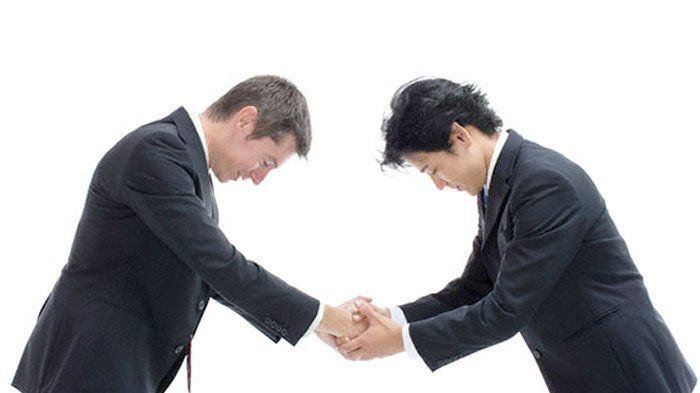Manners, Politeness is the cornerstone of civil society, shaping our interactions and relationships with others in profound ways. It reflects respect, consideration, and empathy, and is essential for fostering positive social connections. In this article, we will explore practical steps for mastering the art of politeness and incorporating it into our daily lives.

The Gentleman’s Guide to Manners: Essential Etiquette for Men
Understanding Politeness:
Politeness goes beyond mere etiquette; it is an expression of kindness, thoughtfulness, and respect for others. It involves being mindful of social norms, showing empathy, and valuing the feelings and perspectives of those around Tvtoto.
Key Steps for Cultivating Politeness:
1.Active Listening:
Give your undivided attention to others when they speak. Maintain eye contact, nod to show understanding, and avoid interrupting. Listening attentively demonstrates respect and validates the speaker’s thoughts and feelings.
2. Polite Language:
Incorporate courteous phrases such as “please,” “thank you,” and “excuse me” into your vocabulary. Use respectful language and tone when communicating with others, both in person and online.
3. Mindful Behavior:
Practice basic manners in various social settings. Hold doors open for others, offer your seat to those in need, and greet people with a smile. Small acts of kindness and consideration can make a big difference in someone’s day.
4. Respect Personal Space:
Be mindful of other people’s boundaries and personal space. Avoid invading their space without permission and respect their privacy in all interactions.
5. Express Gratitude:
Show appreciation for acts of kindness or assistance from others. A simple thank-you note, text, or verbal acknowledgment can go a long way in strengthening relationships and fostering goodwill.
6. Handle Conflict Gracefully:
Approach disagreements with diplomacy and empathy. Listen to the other person’s perspective without interrupting or judging. Focus on finding common ground and resolving conflicts peacefully.
7. Be Punctual:
Respect other people’s time by arriving on time for appointments and meetings. Being punctual demonstrates reliability and consideration for others’ schedules.
8. Practice Empathy:
Put yourself in the shoes of others and try to understand their thoughts, feelings, and perspectives. Show compassion and empathy towards those who may be experiencing challenges or difficulties.

9. Benefits of Politeness:
Embracing politeness has numerous benefits, both for individuals and society as a whole. Polite individuals are more likely to be respected, trusted, and valued by their peers, leading to stronger relationships and greater opportunities for personal and professional success. Additionally, a culture of politeness fosters a sense of community and cooperation, creating a more harmonious and pleasant environment for all.
Conclusion:
In a world where civility and respect are increasingly rare, mastering politeness is more important than ever. By incorporating these simple yet powerful principles into our daily lives, we can contribute to a culture of kindness, empathy, and mutual respect. Let us strive to be ambassadors of politeness, spreading positivity and goodwill wherever we go.
People should have manners and etiquette for several important reasons:
1. Building Good Relationships:
Manners and etiquette are essential for building positive relationships with others. Being polite shows respect and consideration for the feelings and well-being of others, which can help foster trust and strengthen bonds between individuals.
2. Promoting Respect and Civility:
Politeness promotes respect and civility in social interactions. When people treat each other with courtesy and consideration, it creates a more harmonious and pleasant environment for everyone involved.
3. Facilitating Effective Communication:
Politeness enhances communication by creating a supportive and respectful atmosphere. When people communicate politely, they are more likely to listen attentively, express themselves clearly, and resolve conflicts peacefully.
4. Enhancing Professional Opportunities:
Manners and etiquette are important in professional settings, where they can have a significant impact on career success. Employers value employees who demonstrate professionalism, courtesy, and respect in their interactions with colleagues, clients, and stakeholders.
5. Reflecting Personal Character:
Politeness reflects positively on an individual’s character and integrity. People who demonstrate good manners and etiquette are often perceived as trustworthy, reliable, and considerate, which can enhance their reputation and social standing.
6. Promoting Social Harmony:
Politeness contributes to social harmony. When society collectively values and practices norms of politeness, it creates a more peaceful and cooperative environment where people feel respected and valued.
7. Avoiding Conflict:
Politeness can help prevent unnecessary conflicts and arguments. By showing appreciation and consideration for others’ feelings, we can reduce the likelihood of conflicts and mend strained relationships.

8. Demonstrating Emotional Maturity:
Behaving politely also demonstrates emotional maturity. When someone can control their emotions and act politely in challenging situations, it shows maturity and high interpersonal intelligence.
Therefore, manners and etiquette play a vital role in everyday life and contribute to shaping a better, more respectful society.
There are several factors that can contribute to someone lacking manners and etiquette:
1. Lack of Awareness:
Some individuals may simply be unaware of the importance of manners and etiquette in social interactions. They may not have been taught or have not paid attention to the value of politeness in their upbringing or environment.
2. Environmental Influence:
The environment in which a person is raised can also influence their behavior. If someone grows up in an environment where manners are not emphasized or where rude behavior is normalized, they may not develop proper manners themselves.
3. Upbringing and Education:
A person’s upbringing and education play a significant role in shaping their manners and etiquette. If someone is not taught proper manners or is not given consistent reinforcement of polite behavior at home or in school, they may not prioritize manners in their interactions with others.
4. Manners Cultural Differences:
Cultural norms and practices vary widely, and what is considered polite behavior in one culture may not be the same in another. Individuals from different cultural backgrounds may have different interpretations of what constitutes polite behavior, leading to misunderstandings or clashes in social interactions.
5. Personal Manners Attitude:
In some cases, a person’s attitude or personality traits may contribute to their lack of manners. Someone who is self-centered, rude, or dismissive of others may not prioritize politeness in their interactions.
6. Socialization and Peer Influence:
Peer pressure and social dynamics can also impact a person’s behavior. If someone’s peer group or social circle does not value politeness or if they are influenced by peers who exhibit rude behavior, they may adopt similar behavior patterns themselves.
Overall, the absence of manners and etiquette can stem from a combination of individual, social, cultural, and environmental factors. Addressing these factors through education, awareness, and positive reinforcement of polite behavior can help encourage the development of manners and etiquette in individuals and communities.
Read More Article About “GRWM Essentials: Must-Have Products for Your Beauty 202“


